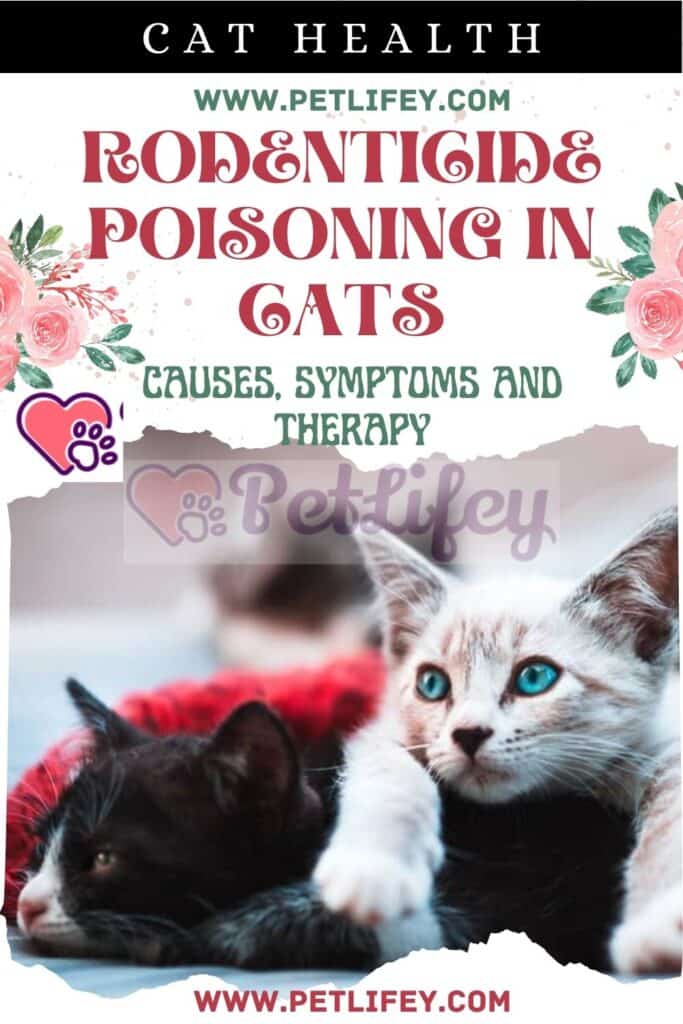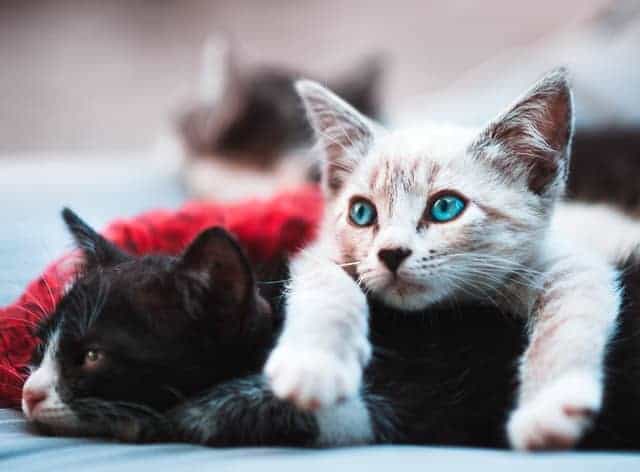Rodenticide poisoning in cats, a very common danger in the domestic feline. Let’s try to understand what are the causes that cause it, the typical symptoms, the diagnosis and the right therapy.

Life together with the domestic cat is full of stimuli and shared experiences. Taking care of the furry cat, however, is not always easy. It may happen that, in a moment of distraction or absence of his owner, the cat gets into trouble or endangers his health. There are many accidents to which the feline can be victim and you must always be ready to help him. Let’s talk today about rodenticide poisoning in cats, one of the most common poisonings in pets.
Rodenticide poisoning in cats: typical causes and symptoms
Rodenticide poisoning in cats is one of the most common and also affects cats. Although many owners of the furry are attentive to the conservation of the poison at home, the risks for the animal are many and frequent. We read specifically here in the article.
The cat is an animal that is always curious about the things around him, especially in his home environment. Being cautious is never enough, as it must be taken into account that the risk for an instinctive animal like him is always around the corner.
Poisoning is one of the most common incidents for pet, and rat poison or rodenticide poison is widespread among the various types. When you think you have put your cat in safety, away from toxic and dangerous substances, he is able to come into contact with us.
Rodenticide poisoning occurs in cats from two causes. The poison that is used for mice through traps, baits around the house, powders for the home or for professional use, pellets of various sizes, paraffin lumps and tidbits in filter paper bags, can attract the curious gaze of the feline, who can naively eat it.
The furry can also poison himself with Coumadin, used for the elderly suffering from thrombosis. Cat may notice some pill that has fallen to the floor by mistake and, taken by curiosity, can ingest it and put his health at risk. The cat can also become intoxicated by ingesting dead prey from the rat poison, although it depends on the dose present in the rodent.
Symptoms of rodenticide poisoning
When rat poison is ingested by the animal, it remains hidden in the body and after 15-20 days it can trigger internal or external bleeding. Thus, the feline is asymptomatic in the beginning, since the symptoms appear as a consequence of a certain problem in him, such as cystitis, gastritis or tracheitis. Symptoms include:
- Weakness
- Ache
- Vomiting Cat
- Drowsiness
- Cough in cats
- Tachycardia
- Anorexia in cats
- Abatement
- Diarrhea Cat
- Pale mucous membranes
- Hypothermia in cats
- Fever in cats
- Dyspnea in the cat
- Lameness
Symptoms of bleeding also occur, which vary depending on the organ affected:
- Hemorrhagic vomiting
- Vaginal bleeding
- Bleeding gums
- Bruising
- Melena
- Epistaxis
- Hematuria
Once you have checked the presence of one or more symptoms, what should you do? We read later in the article.
The feline and poisoning: diagnosis and therapy

In case of suspected rodenticide poisoning in cats, with the presence of these important symptoms, it is essential to intervene as soon as possible. Let’s see how to act in this delicate situation for the animal.
If your feline suffers from rodenticide poisoning, it is necessary to make the diagnosis through various laboratory tests: checking symptoms, blood tests, medical history, checking the coagulation mechanism in vitro and not in vivo.
The therapy for this type of poisoning involves the administration of vitamin K1, which greatly helps the synthesization in coagulation, a treatment with a duration of 3-4 weeks. If the animal is in an emergency, it can be administered subcutaneously. This drug can then be given orally.
Treatment with this vitamin involves two doses a day, preferably together with meals, to promote its absorption. You can decide to administer oxygen and opt for transfusions in the most serious cases, trying to keep the animal still to limit internal bleeding.
It must be remembered that if the cat has ingested the poison for a few hours, it can induce vomiting or perform a gastric lavage. In any case, relying on the help and decisions of the veterinarian is fundamental and always safe.






